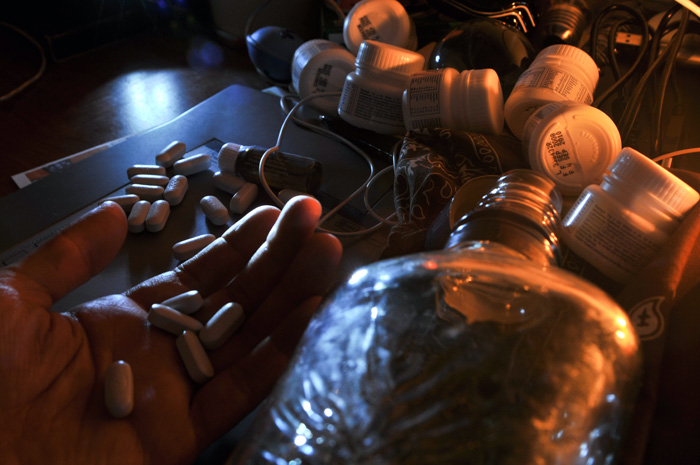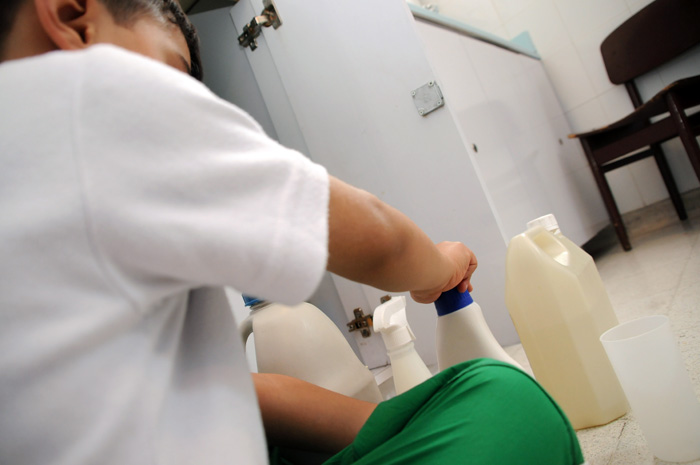These are figures given by the Center of Information, Management and Research on Toxicology of Universidad Nacional de Colombia (Cigitox, for its acronym in Spanish), which is working in association with Consejo Colombiano de Seguridad of the Ministry for Social Protection.
When collecting data of the last 4 years, the institution found that 51% of the cases corresponded to suicidal attempts. According to the coordinator of Cigitox, Javier Rodríguez Buitrago, doctor in toxicology, between July of 2005 and December of 2009, 27,291 requests for information and advisory were registered by doctors, enterprises and common people in Colombia, all of them about intoxication and accidents with poisonous animals and toxic plants.
Close to 24,772 queries were related to intoxication, and over a half (12,634) corresponded to suicidal attempts, which were carried out by consuming pesticides.
Rodríguez Buitrago affirms that, when the substances used for this purpose were studied, it was found that 79% corresponded to products without legal licenses; that is to say, they were manufactured by illegal enterprises. Thus, they do not count with the certified requirements by law for their use at home. "These products without registration, for instance rat poisons, tend to be more lethal than legal brands."
The worst thing, says the doctor from Universidad Nacional de Colombia, is that these pesticides are sold without any restrictions on the streets and in public places such as stores and supermarkets in different neighborhoods.
The issue of suicide attempts becomes something more serious when figures are examined: this situation happens mainly in people between 15 and 44 years old. In 2009, according to figures by Instituto Nacional de Medicina Legal, 334 people died in this age range (139 women and 195 men).
However, this phenomenon is increasingly happening among teenagers and children at school. As a result, 34% of the total of intoxication cases occurs in people under 14 years old. There are registered cases of 7 years old children, who tried to commit suicide using this method. Last year, 16 cases of deceased children under 10 years old were reported due to intentional intoxication.
Classifying by gender, women, with 61% of prevalence, committed more suicide attempts with toxic substances than men. According to figures, 35% (almost 60 cases) were pregnant. However, according to figures given by Medicina Legal, men achieve more successful suicides. In 2009, 170 women and 456 men died.
The director of the psychiatry department at Universidad Nacional de Colombia, Jose Manuel Calvo, affirms that, from the mental point of view, when a suicide attempt is evaluated, one of the aspects taken into account to determine its efficiency is the method used by the person.
According to data provide by Cigitox, 28% of voluntary intoxications occur due to ingestion of medicines such as painkillers, antidepressants and the combination of such medicines with alcohol.
If figures of voluntary intoxication are alarming, those of accidental cases or negligence are shocking, since it is a common belief that people pay more attention to self-care of children"s health. Medicina Legal reported that 63 people died under those circumstances.
According to Cigotox data, accidental intoxications represent 3% of the cases, with 8,174 registered cases between 2005 and 2009. The most affected population are children between 0 and 4 years old, mainly associated to negligence events by parents or relatives, who bottle chemical substances, cosmetics or cleaning products in medicine, food or drinks containers, which are left in any corner of the house.
In the meantime, 8% of intoxications occur due to accidents at work (occupational). The Toxicology Advisory Center has attended 1,982 cases in the last 4 years. According to Javier Rodríguez, these situations are generally related to the non-fulfillment of basic security measurements and the non-use of elements of personal protection when using chemical, biological or radioactive substances in industry, agricultural activities or labs.
Other cases are related to criminal situations. If these intoxications are not alarming, the use of scopolamine has been changed for other substances such as medicines to put victims to sleep. "They are available in any drugstore with a medical prescription", said Rodríguez Buitrago.
 Correo Electrónico
Correo Electrónico
 DNINFOA - SIA
DNINFOA - SIA
 Bibliotecas
Bibliotecas
 Convocatorias
Convocatorias
 Identidad UNAL
Identidad UNAL





